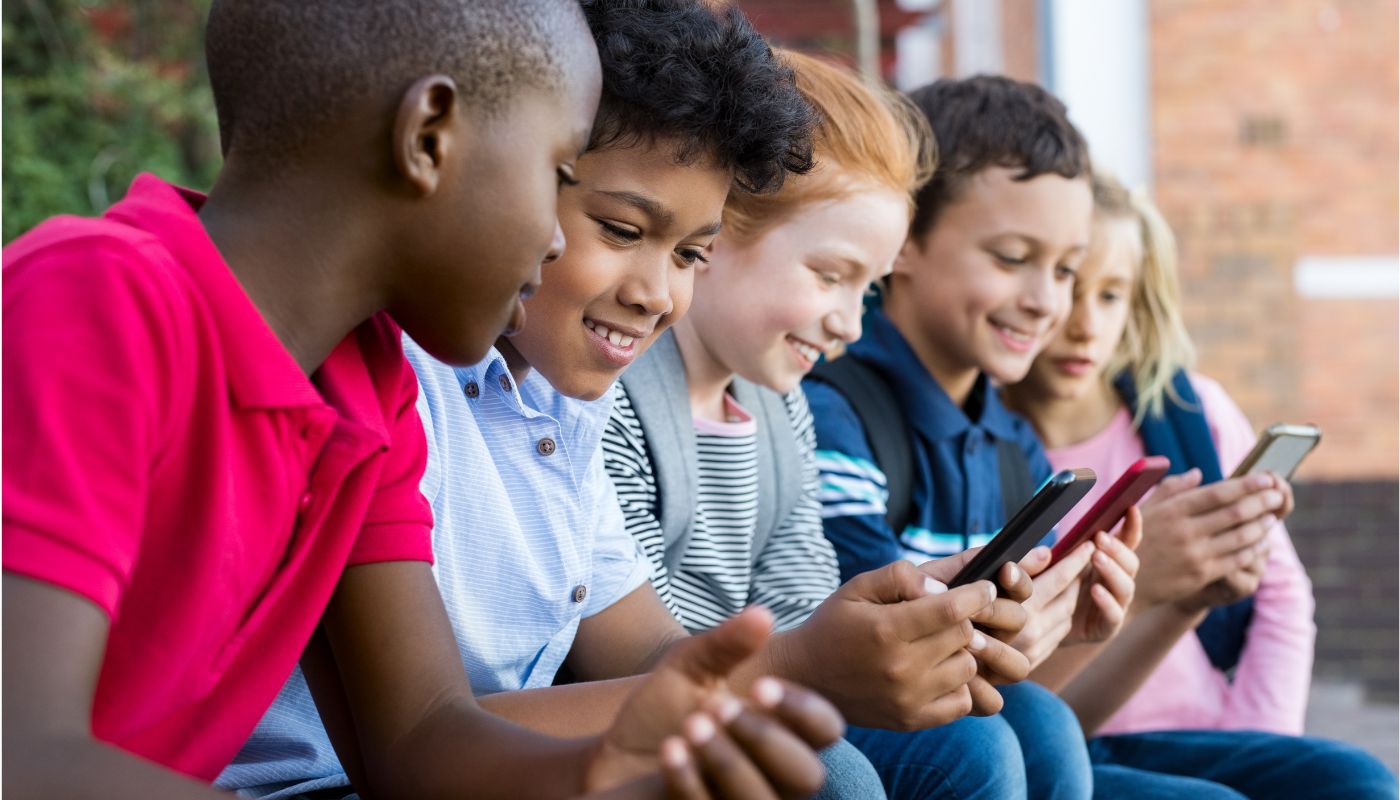From Screen to Social: Nurturing interpersonal skills and healthy friendships in the digital world

Have you ever found yourself in a situation where you're laughing at a meme on your phone, only to realize that you're alone in a public place? Or have you ever typed out a witty response to a friend's message, only to hit send and realize it wasn't as funny as you thought it was? Welcome to the digital world, where our social lives exist behind screens and our social skills may be a bit rusty. But fear not, dear reader, for in this article we'll explore how to navigate the online world with humor and finesse, and how to translate our witty banter into healthy and meaningful relationships. So grab your phone, pull up a chair, and let's dive into the world of digital socialization.
The Impact of Technology on Interpersonal Skills
It is said that technology has made the world a smaller place, but it seems to have made our interpersonal skills shrink too. These days, we spend more time swiping right and left than we do making eye contact or engaging in witty banter. We've become so reliant on emojis and GIFs to convey our emotions that I wouldn't be surprised if future generations develop a separate language altogether.
Technology has undoubtedly revolutionized the way we communicate with one another, but its impact on our interpersonal skills is a double-edged sword. On one hand, technology has made it easier than ever to connect with people from all corners of the world and has opened up new avenues for socialization. On the other hand, the constant presence of screens in our lives can hinder our ability to form healthy relationships in the offline world.
One of the biggest ways technology affects our interpersonal skills is by altering our communication style. With the rise of texting, instant messaging, and social media, we've become accustomed to communicating in short, truncated messages rather than engaging in long, meaningful conversations. This can lead to a lack of depth in our relationships and can make it harder to form connections with others.
Additionally, the immediacy of technology has led to a decrease in our ability to be patient and attentive listeners. We've become accustomed to getting information and responses instantly, which can make it difficult to focus on someone else's thoughts and feelings when we're used to instant gratification.
But it's not all doom and gloom. Technology also provides opportunities to improve our interpersonal skills if we use it wisely. Video calls, for example, can allow us to engage in face-to-face conversations with people who may be geographically distant. Social media can provide a platform to meet like-minded individuals and form online communities that can lead to offline friendships.
The Importance of Interpersonal Skills
In today's digital age, the importance of developing strong interpersonal skills cannot be overstated. As more and more of our communication takes place online, it can be easy to forget that we are interacting with real people with thoughts, feelings, and experiences that are just as valid as our own. By prioritizing interpersonal skills, we can build more meaningful and fulfilling relationships both online and offline.
Digital etiquette is an essential aspect of developing interpersonal skills in the digital age. It is crucial to remember that our online actions can have real-world consequences, so it's important to conduct ourselves with respect and kindness. This includes being mindful of our tone and language when communicating online, avoiding spreading rumors or misinformation, and respecting other people's privacy and boundaries.
In addition to digital etiquette, skills like active listening, empathy, and effective communication are vital in the digital age. Active listening means paying close attention to what others are saying, asking thoughtful questions, and demonstrating that we value their opinions and perspectives. Empathy involves putting ourselves in other people's shoes and trying to understand their experiences and feelings. Effective communication means expressing ourselves clearly and respectfully, while also being open to others' input and feedback.
Developing strong interpersonal skills in the digital age can have numerous benefits. It can help us form more meaningful connections with others, both online and offline. It can also make it easier to resolve conflicts and misunderstandings, as we are better equipped to understand and communicate with others. Furthermore, cultivating strong interpersonal skills can help us navigate the challenges and uncertainties of the digital world, such as cyberbullying and online harassment.
Tips for Nurturing Interpersonal Skills in the Digital World
1. Use Technology as a Tool, Not a Replacement
It is important to remember that technology should be used as a tool to supplement face-to-face interactions, not as a replacement for them. While technology can help us stay connected with others, it is essential to meet in person whenever possible. Face-to-face communication helps to build trust and strengthens relationships.
2. Practice Active Listening
Active listening is an essential interpersonal skill that involves fully engaging with the person you are communicating with. It involves giving your full attention to the speaker, acknowledging their feelings, and responding appropriately. In the digital world, active listening can be practiced through video calls or messaging platforms where you give your undivided attention to the conversation.
3. Practice Empathy
Empathy involves understanding and sharing the feelings of others. It is an essential skill in building and maintaining healthy relationships. In the digital world, it is important to practice empathy by understanding the perspective of the person you are communicating with. This can be done by actively listening, acknowledging their feelings, and responding appropriately.
4. Build Stronger Relationships Through Video Calls
Video calls can be a great way to build stronger relationships in the digital world. They allow for face-to-face communication, which can help to build trust and strengthen relationships. Video calls also enable non-verbal communication, which can help to convey emotions and strengthen connections.
5. Set Boundaries
Setting boundaries is important in both offline and online environments. It is important to set clear boundaries in the digital world to avoid over-reliance on technology and to maintain a healthy work-life balance. This can be done by setting specific times for checking emails or social media, and by limiting the amount of time spent on digital devices.
Tips for Building Healthy Friendships in the Digital World
1. Join Online Communities
Online communities can be a great way to connect with people who share similar interests or hobbies. They provide an opportunity to connect with like-minded individuals and build friendships based on common interests. It is important to choose online communities that align with your values and interests to foster meaningful connections.
2. Participate in Online Events
Participating in online events such as webinars or virtual conferences can be a great way to connect with others and build relationships. These events provide an opportunity to interact with individuals from different backgrounds and industries, which can broaden your perspective and help you build diverse friendships.
3. Practice Honesty and Authenticity
Honesty and authenticity are essential in building healthy friendships in the digital world. It is important to be true to yourself and communicate honestly with others. This can help to build trust and establish a strong foundation for your friendships.
4. Take the Initiative
In the digital world, it is important to take the initiative to connect with others. This can be done by reaching out to individuals you admire or respect, participating in online discussions, or joining virtual networking events. Taking the initiative can help to build confidence and facilitate meaningful connections.
5. Don't Rely Solely on Social Media
While social media can be a great tool for connecting with others, it is important not to rely solely on it for building friendships. Social media interactions can be superficial, and it is important to make an effort to connect with others in more meaningful ways. This can be done through video calls, in-person meetups, or participating in shared activities.
6. Be aware of safety
With so much personal information being shared online, it's important to be mindful of our privacy settings, and to avoid sharing sensitive information with strangers. Additionally, it's important to be vigilant about online scams and phishing attempts, as well as to take steps to protect ourselves against cyberbullying and online harassment. By prioritizing safety and taking proactive steps to protect ourselves and our personal information online, we can enjoy the benefits of digital communication and interaction while minimizing potential risks and drawbacks.
Take Away
Despite the widespread belief that human social networks are practically boundless, the reality is that they are much smaller than anticipated, even in the age of the internet. This has significant implications for optimal organizational structures. Throughout history, humans have mostly lived in small, self-contained communities. Census records, including the 1086 Domesday Book census of England, as well as data on present-day small-scale societies, suggest that the average community size is approximately 150 individuals. This also happens to be the average size of personal social networks – the number of individuals with whom one maintains a mutually reciprocal relationship.
Thus, the scope of human social networks remains relatively small, even in this age of rampant digital communication, as it has throughout history. This underscores the importance of cultivating strong interpersonal skills in the digital world. By actively listening, practicing empathy and authenticity, and taking the initiative to connect with others, we can develop meaningful relationships both online and offline. Building healthy friendships in the digital world requires us to remain mindful of the limitations of our social networks and to seek out communities and individuals that align with our values and interests. Ultimately, by nurturing interpersonal skills in the digital world, we can build stronger, more resilient relationships that contribute to our personal and professional growth.




